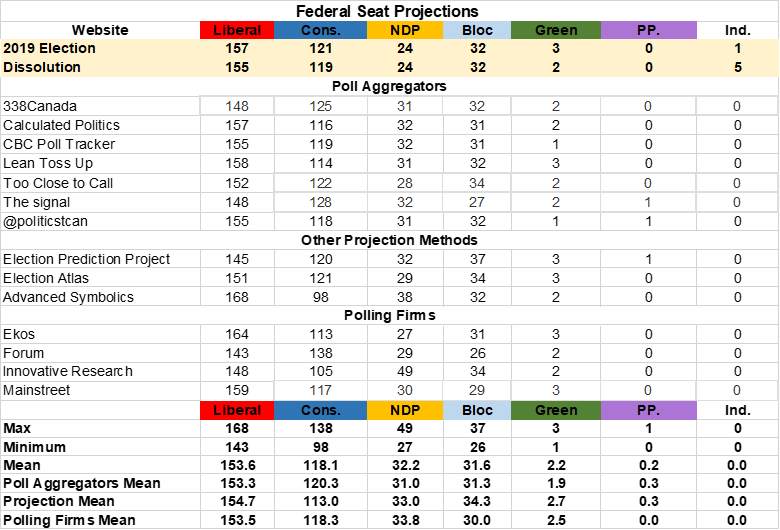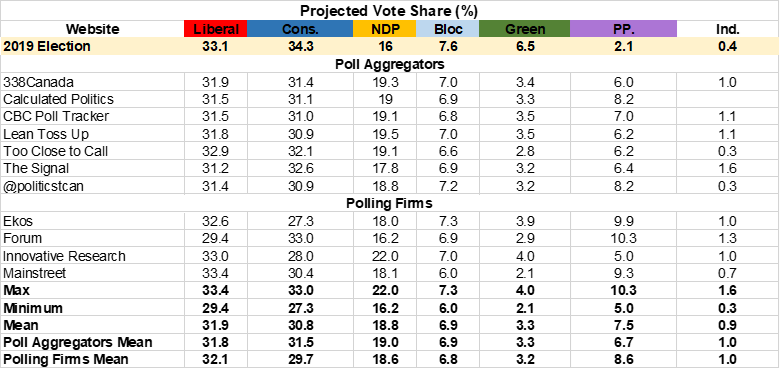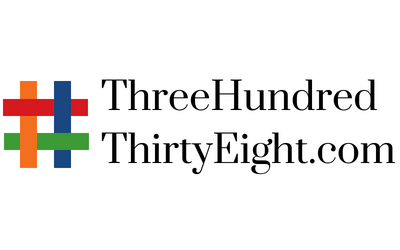With federal election day having arrived the campaigns are turning their attention to getting out the vote. The last poll results have been reported by the big survey firms and the final election results will not start showing up until the evening. Ultimately, it’s a slower day for those who love politics waiting for the election results. A day where many will spend it speculating about the results and making predictions on who will win.
While many of us like to predict what will happen on election day based on intuition, poll aggregating websites and individual polling firms use models to attempt to project which party will win every seat in Canada. The results from multiple Canadian prognosticators can provide a snapshot of what is predicted to happen tonight.
Results are shared here of seven websites that aggregate polls from the polling firms and then create a model to predict the election are examined (338Canada, Calculated Politics, CBC Poll Tracker, Lean Toss Up, Too Close to Call, and The Signal, @politicscan), three projection websites using their own models (Election Prediction Project, Election Atlas, and Advanced Symbolics) and four polling firms which use their own data to predict the election (Ekos, Forum, Innovative Research, and Mainstreet).

Every single projection predicts a Liberal minority government. However, the highest projection has the Liberals within a couple of seats of a majority. The average projection has the Liberal Party dropping a single seat to 154 from the numbers at dissolution. The Conservative Party projections have them on average at 120 seats, up one from dissolution. The NDP are predicted to make the most gains moving up eight seats. The Bloc are projected to remain the same . The Green Party is expected to have 2 seats. Note, one seat was vacant at dissolution.
Some of the differences in projections may be due to differences in how the poll aggregator websites averaged the polls. Similarly, the differences in the polling firms’ projections are due to both their models and what the firms’ final polls projected as the vote share of each party.

The table above provides an overview of the predicted vote share Canada-wide for the poll aggregators and the polling firms. Using the poll aggregators average the Liberal Party is expected to drop 1%, the Conservative Party 3%, the NDP are up 3%, the block down 1%, the Green Party is down 3%, and the PPC is up 5%.
After the election, a second post will provide a basic examination of how well the projections did at predicting the actual election results.
*Updated at 10:46 am to reflect changes to 338Canada‘s projections
*Updated at 2:30 pm to reflect changes to Ekos and The Signal‘s projections and to add @politicscan projections.
